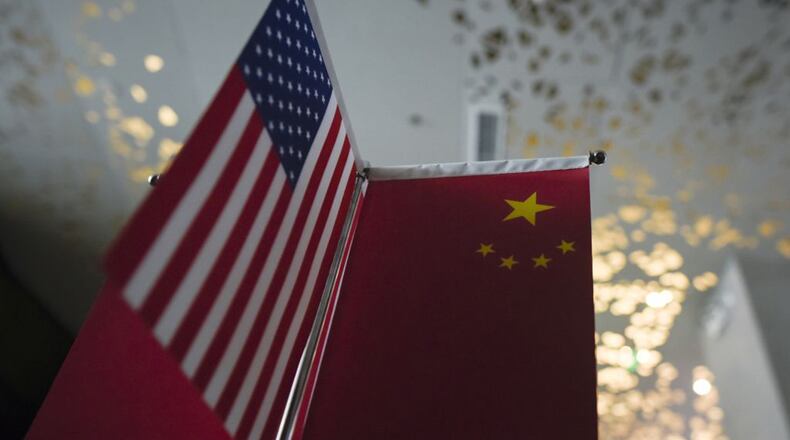WASHINGTON — The U.S. House is expected to begin work this week on a bill intended to help U.S. businesses facing growing competition from China, boost production of semiconductor chips and address supply-chain issues. The bill has the backing of lawmakers from Georgia.
Democrats are hopeful progress on the legislation could provide some good news for President Joe Biden to share March 1 during his State of the Union speech. They are focusing less on the international competition aspect of the package and more on selling the bill as way to create jobs and lower costs domestically.
Georgia U.S. Sen. Raphael Warnock prepared a letter to send Tuesday to House Speaker Nancy Pelosi and Republican Leader Kevin McCarthy encouraging that chamber to pass its version of the bill quickly in hopes of providing a jolt to the economy as quickly as possible.
“I was proud to champion the Senate-passed U.S. Innovation and Competition Act (S. 1260) to make exactly these investments, and I urge the House to expeditiously move forward with the America COMPETES Act to boost American competitiveness globally and to create generations of stable, high-paying jobs for working families in Georgia and across the country,” the Atlanta Democrat writes.
His letter highlights portions of the bill that would increase funding to Georgia’s historically Black colleges and universities, as well as allocate money for regional technology hubs and science, technology, engineering and math workforce development in underrepresented areas.
The legislation also includes $52 billion in funding to jump-start the production of semiconductors and reduce American reliance on chips made in other countries. The Kia car plant in West Point shut down twice last year because of the chip shortage. Both Warnock and his counterpart, U.S. Sen. Jon Ossoff, pushed for similar language to be included in the Senate version of the bill that passed in June.
The House package unveiled last week also includes components of a bill sponsored by U.S. Rep. Carolyn Bourdeaux that would create a new office at the U.S. Department of Commerce to monitor and address supply-chain snags.
“COVID-19 showed us all how critical resilient supply chains are for consumers and businesses,” Bourdeaux, a Democrat from Suwanee, said in a recent statement. “All across my district, small business owners and manufacturers have told me about the challenges they face in accessing materials critical to their business.”
The House is expected to pass its version of the China competition bill this week, and then leaders from both chambers would meet to iron out a final compromise that could pass both chambers in the coming months and be sent to Biden to be signed into law. The Senate bill includes about $200 billion more in funding for scientific research and technology than the House package.
About the Author
Keep Reading
The Latest
Featured




